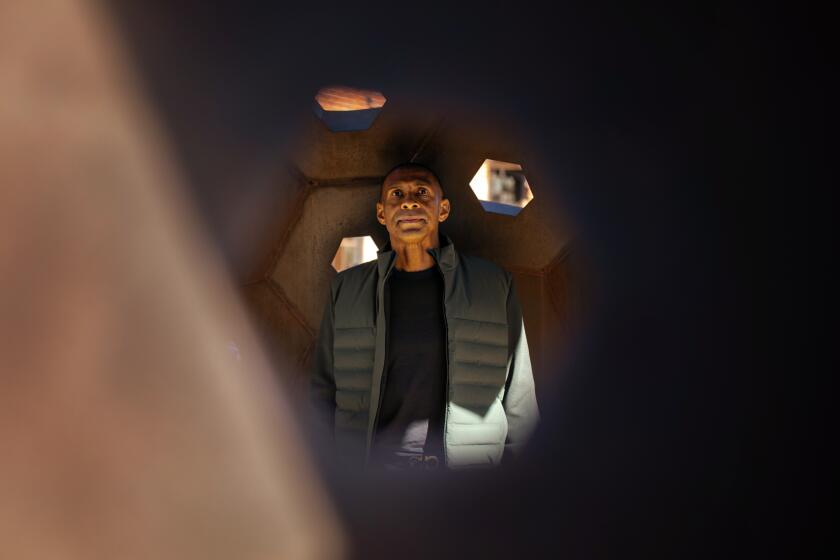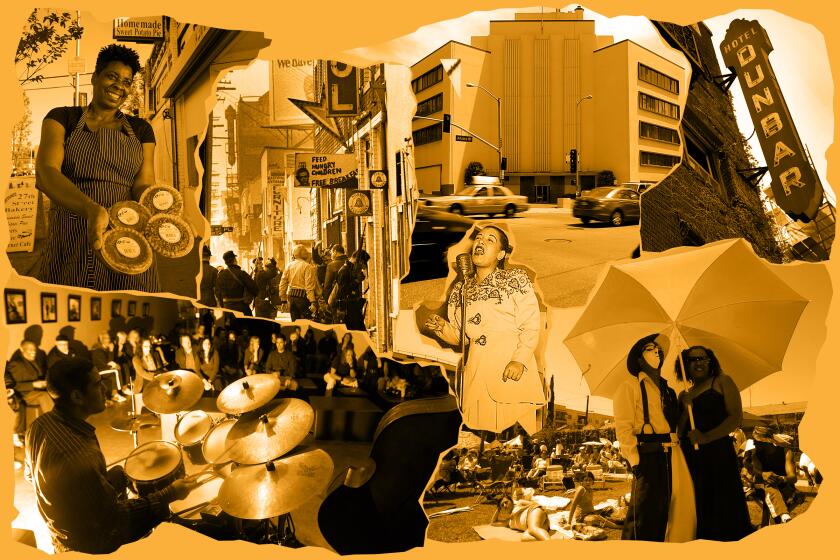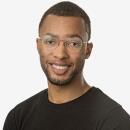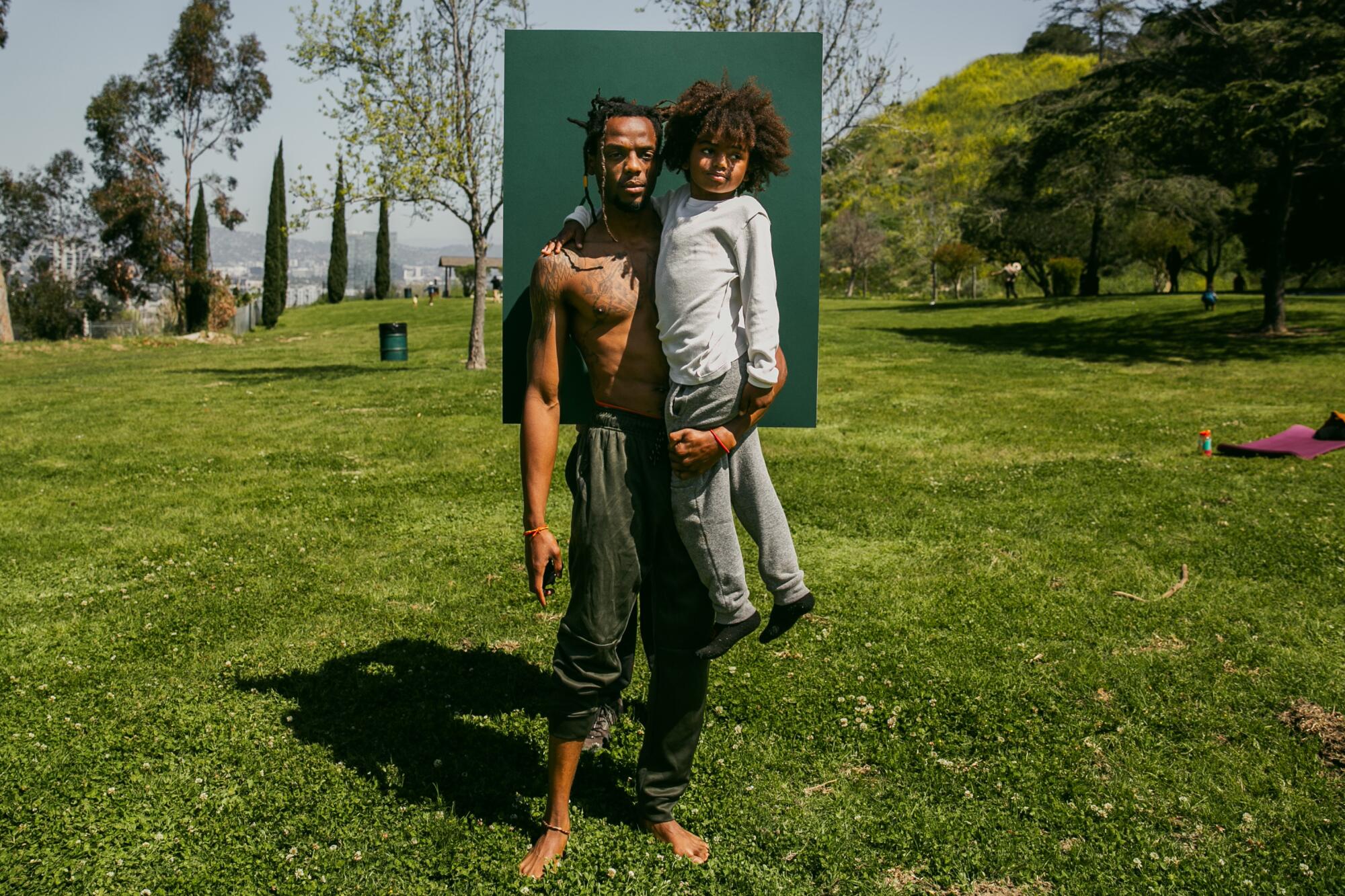
- Share via
At the outset of “Father Time,” an early cut from Kendrick Lamar’s most recent album, “Mr. Morale and the Big Steppers,” the Compton rapper’s partner tells him he really needs some therapy: “Real n— need no therapy,” he responds dismissively. By the end of the song’s first verse, however, it’s clear his partner is right, as Lamar vents about the generational trauma that has afflicted his own life over heart-swelling piano chords.
“We grow up where our parents don’t know about [therapy], our grandparents don’t know about that,” Lamar told Spotify’s Carl Chery last year. “You live and experience the things you go through, and you deal with it right then and there, or you never deal with it. We learn to hold all our s— in.”
“I had to challenge myself to go to therapy,” he continued. “That’s a whole new step. That’s growth.”
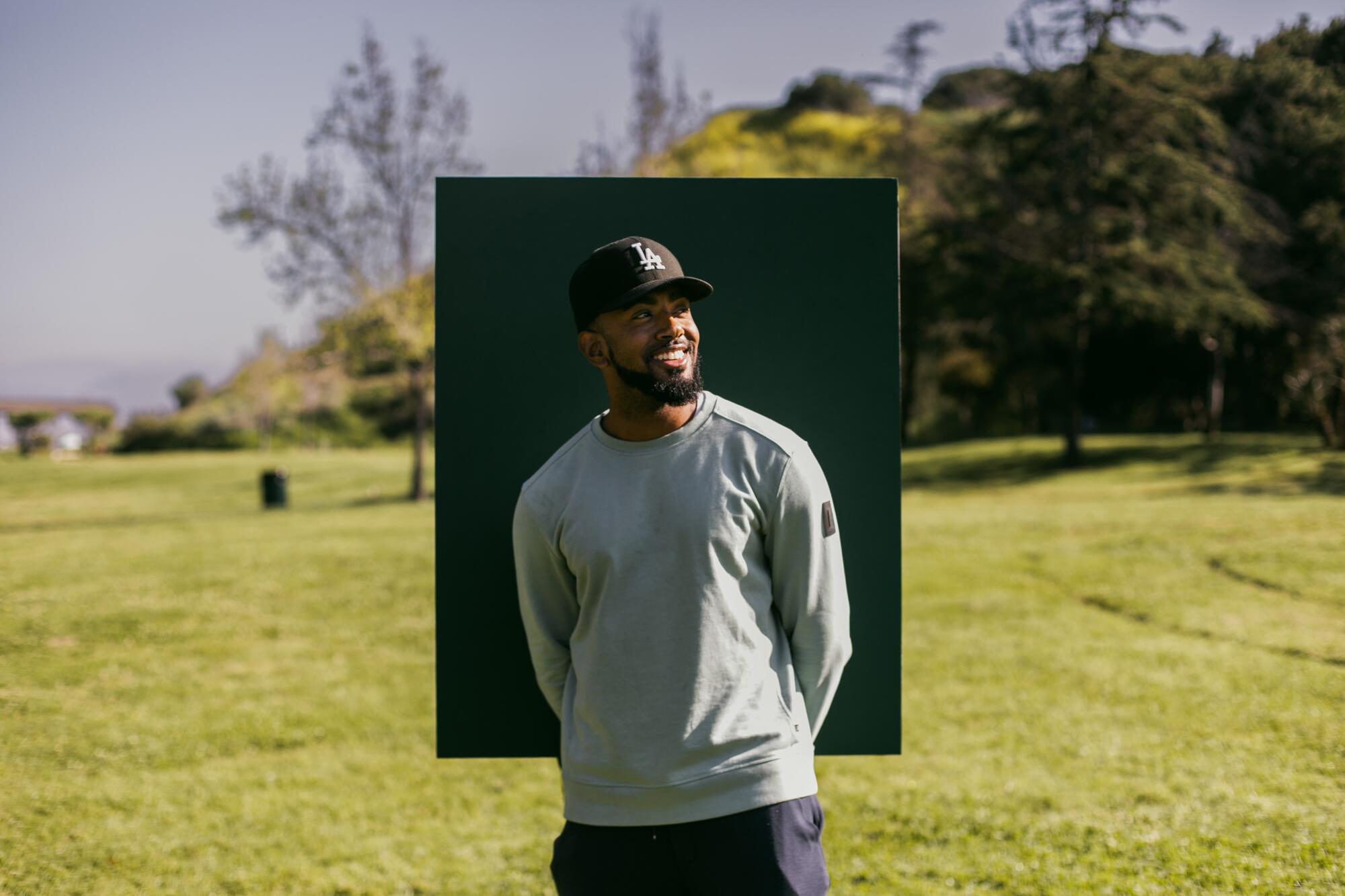
Lamar’s long-held views aren’t uncommon in the Black community. The idea of “suck it up” and “tough it out” has persisted, often resurfacing in abusive relationships or addiction battles rather than healthy release. But slowly, that mindset is beginning to change.
Some are finding release through therapy; others find it easier to shed burdens in communal spaces, such as the yoga and meditation activities held by WalkGood LA. Founded in June 2020 by Etienne Maurice, the organization provides spaces for bonding, primarily in L.A.’s Black community, through yoga classes, guided meditations and breath work, hikes, run clubs and other activities around L.A. and beyond.
In preparation for The Times’ next installment of Behold for Juneteenth, which will spotlight the path toward mental health and psychological freedom in Black L.A., we spoke to attendees of a recent WalkGood yoga session on how they’ve sought healing.
Kennedy Long, Inglewood
“I want the Black community to rid themselves of the idea that going to therapy or seeking help is a sign of weakness. I personally had to learn this lesson the last few years and it took serious work and dedication. We can’t show up as our full selves if we’re struggling mentally. We can’t fight the fight if we’re bogged down by mental illness. I feel as though no one fights as hard for Black people than Black people. We can’t sustain our fight if we aren’t right within.
I believe Black women’s wellness spaces [like WalkGood LA] are sites of resistance because they reject cultural scripts that expect Black women to sacrifice their own physical and psychological health for the benefit of others such as their family and community. Yoga, for me, balances my mind-body connection and I’m able to merge as my full self.”
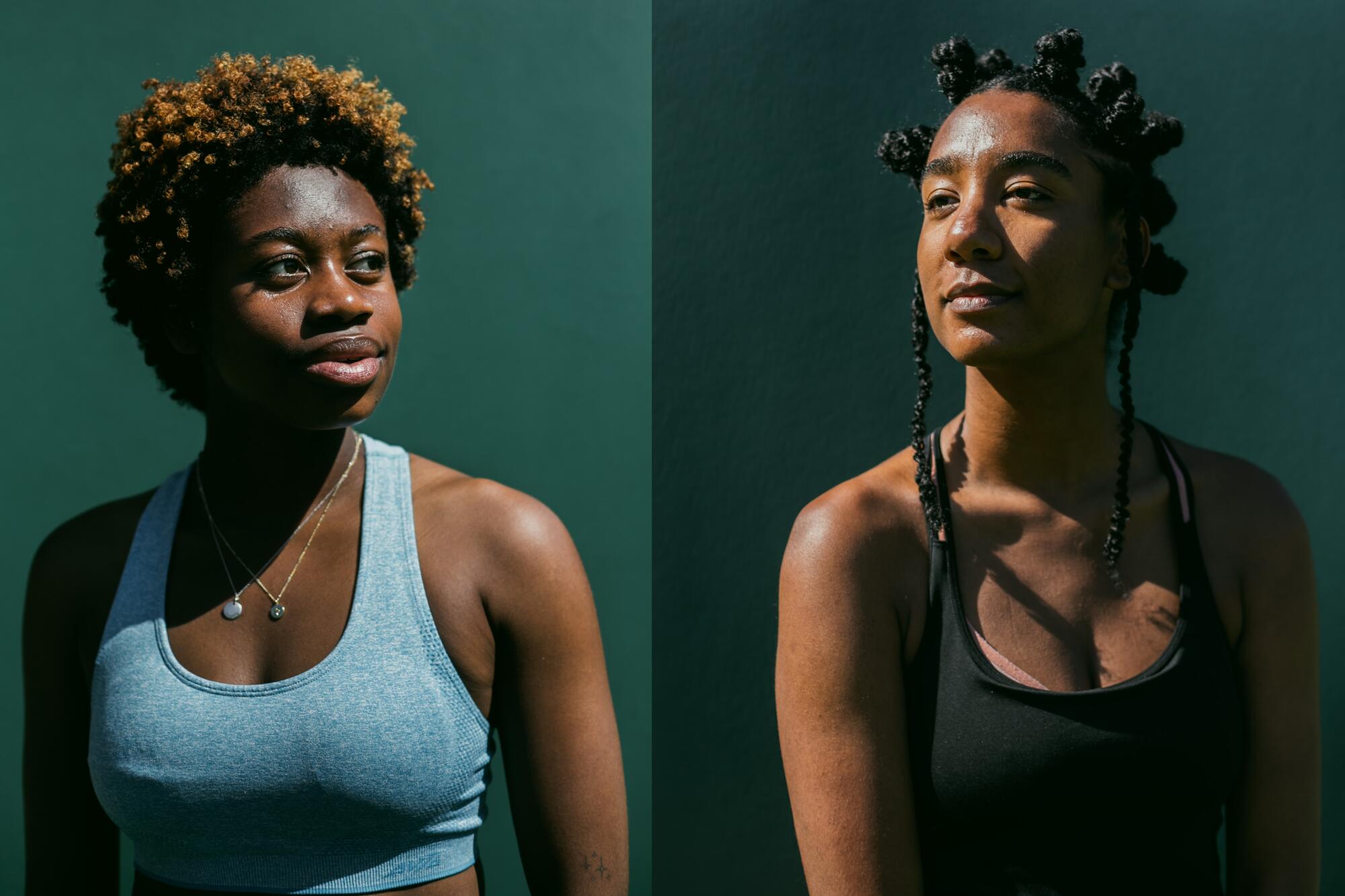
Krystal Sojourner, Mid-City
“These activities give me the opportunity to ground myself in the communities I feel safe in. I’d love to see these events continue to flourish and grow.”
Jasmyn Hamilton, downtown L.A.
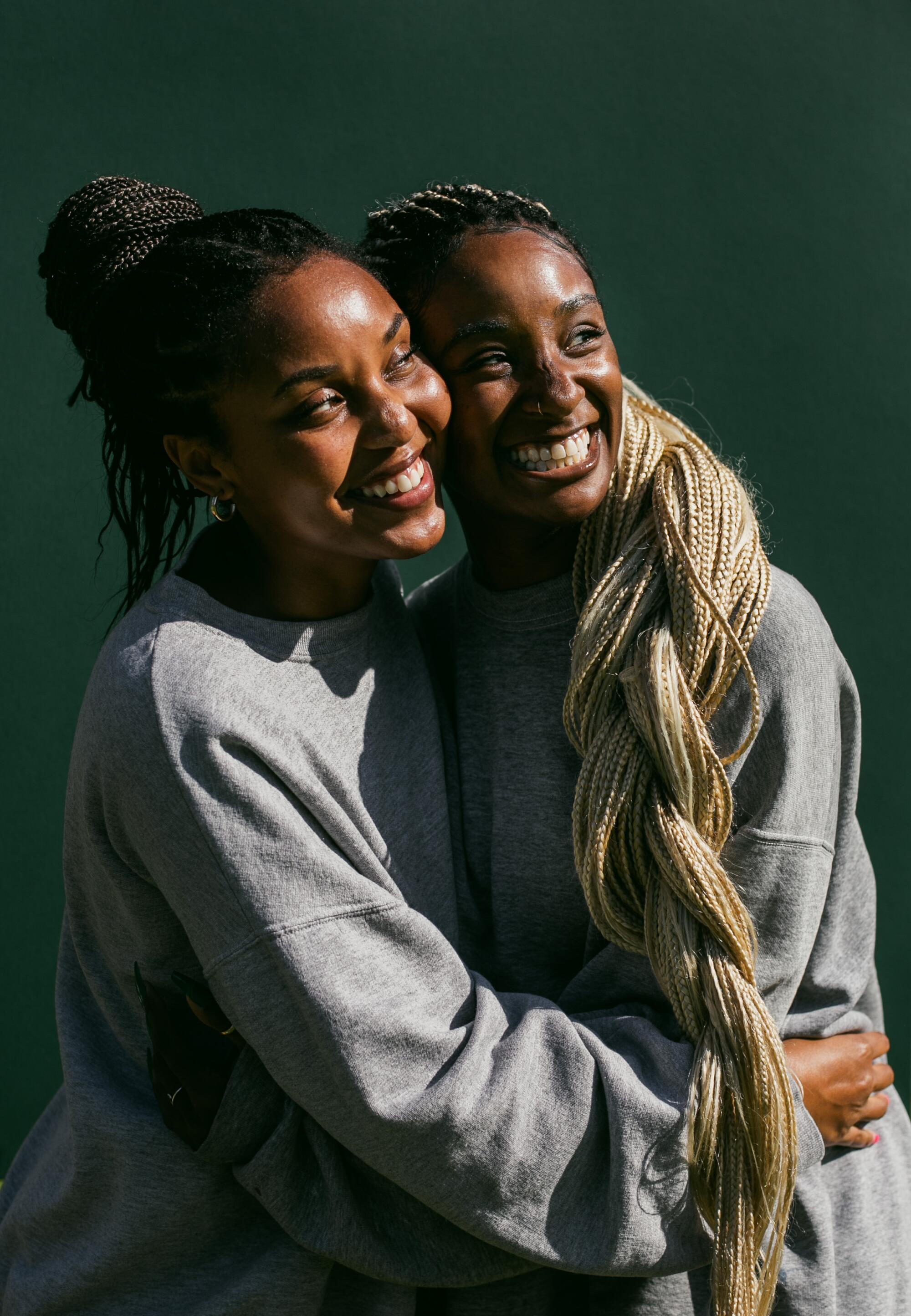
“I prioritize mental health because without it I feel lost. Every day people go through their own hardships, but we would never know. In the Black community we are taught to ‘act hard and to be hard,’ which causes us to be out of tune and to lose touch with ourselves. Being a nurse I have seen it all. I’ve seen what anxiety and lows look like on my patients and tell them as a gentle reminder, ‘if you have nothing at all, at least keep God and your peace close by.’ I would love to see more of the Black community become active and stay active and to simply be surrounded by peace in this harsh world. Having a community like WalkGoodLA allows us as a Black community to be vulnerable, open, active, and to become a family.”
Jasmine Okafor, Koreatown
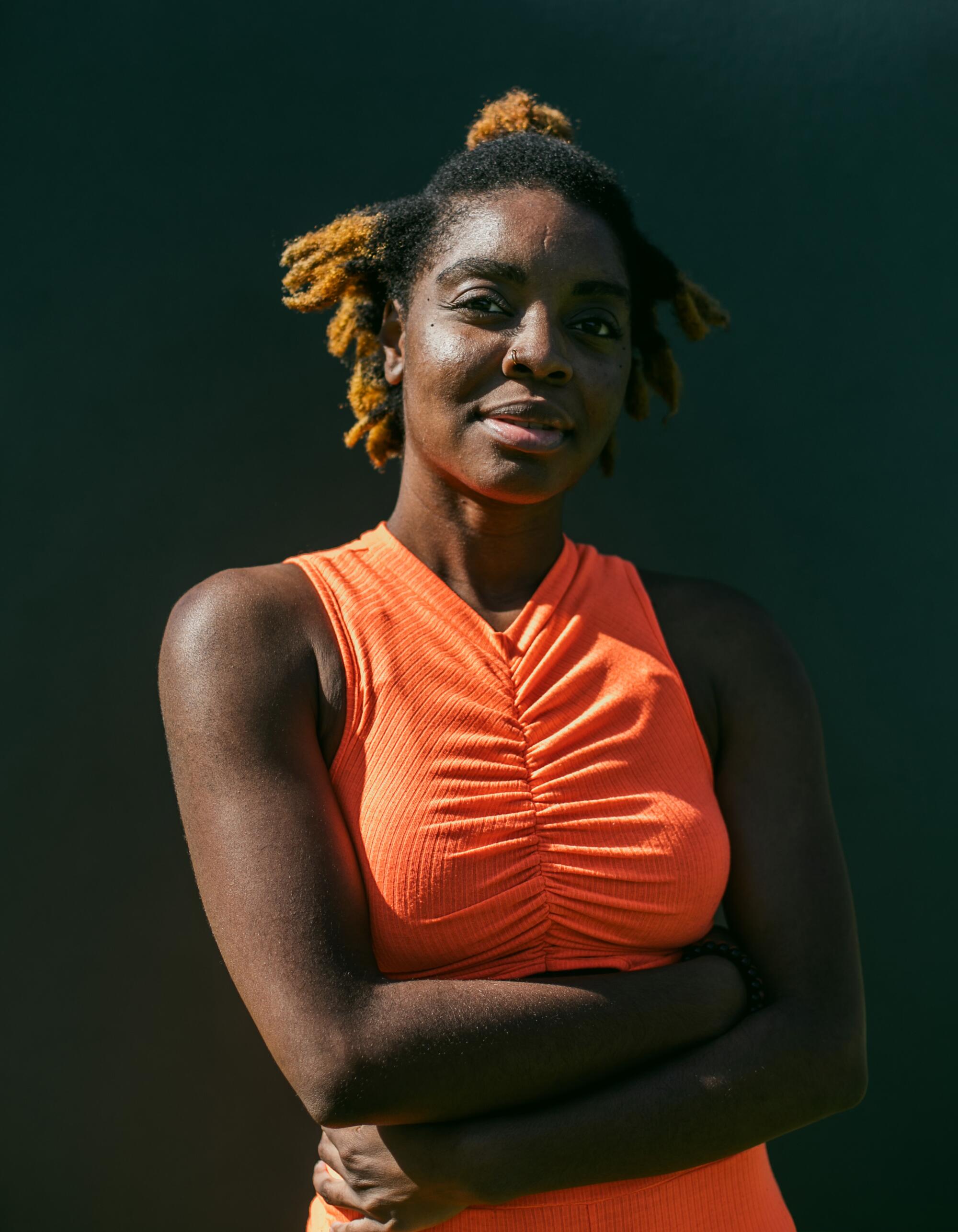
“When I look in the mirror I love the reflection I see. I learned how to be present and love myself by being intentional with my mental health and wellness. For the first time in my life, I feel free. Freedom mentally, physically, spiritually and emotionally. ... Important information is passed down from generation to generation. For most of us, mental health and wellness were not among the important information that was passed down to us. It’s advertised as a luxury and not a necessity. We have the ability to become the change we don’t see and help pass down healthier habits and life changing information. ... As a wellness practitioner specifically in the alternative healing field my aspirations are to see more wellness and mental health awareness in schools and workspaces.
Kamryn Gaskin, Los Angeles
“I prioritize mental health because it’s my birth right to be at peace. I remember a time when I didn’t recognize who I was and that scared me and my family. Since taking a leap of faith to move from New Jersey to Los Angeles, I’ve been blessed to be embraced by the community. Whether it’s practicing yoga, learning defense, taking dance class or even just being still, I’ve learned that existing as a Black woman while being at peace is a revolutionary act.”
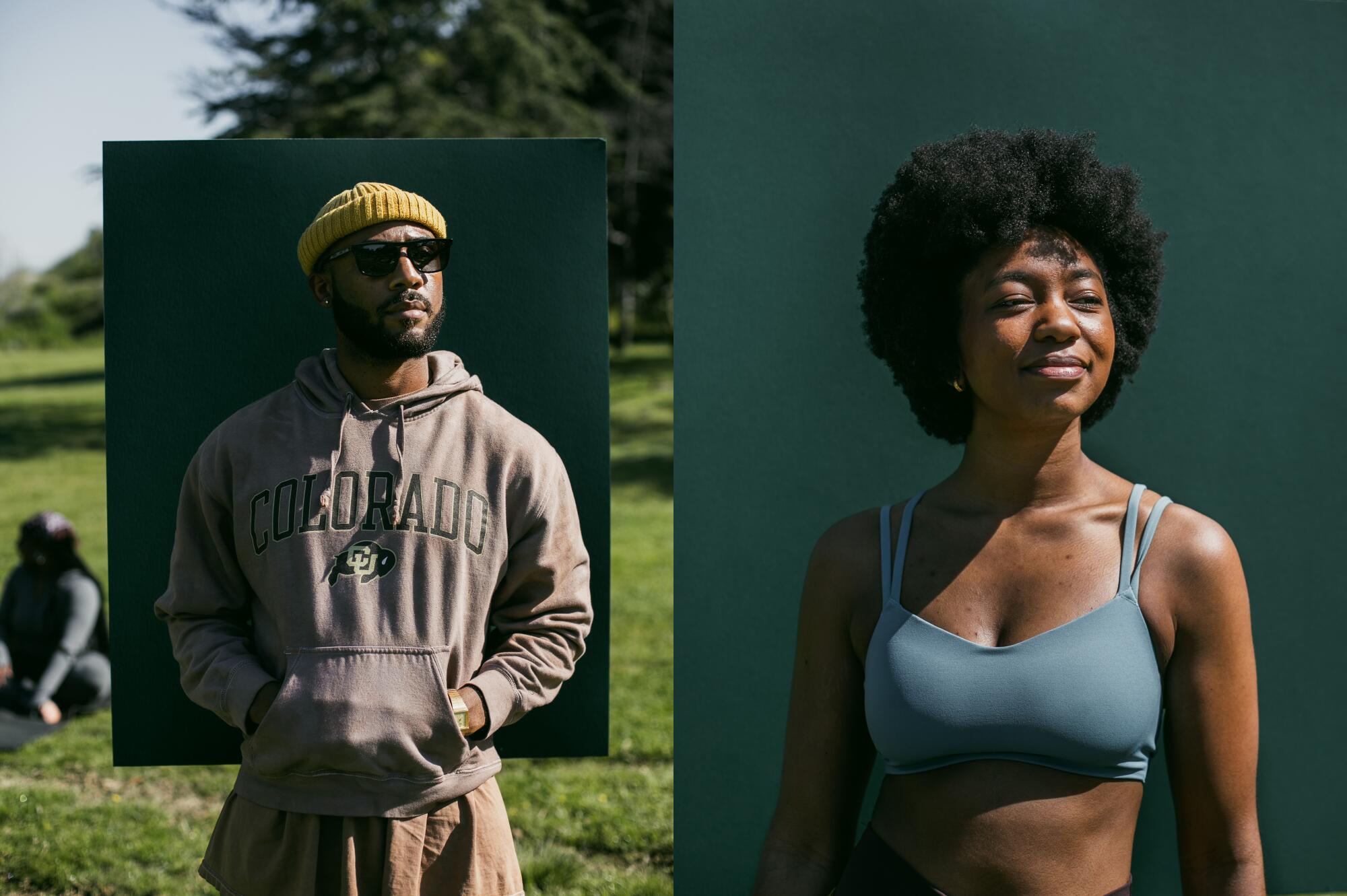
Akita Barrett of Fairfax District (left), Aliyah Murray of Koreatown, Alisha Henson of DTLA and Dash Anderson of Hollywood
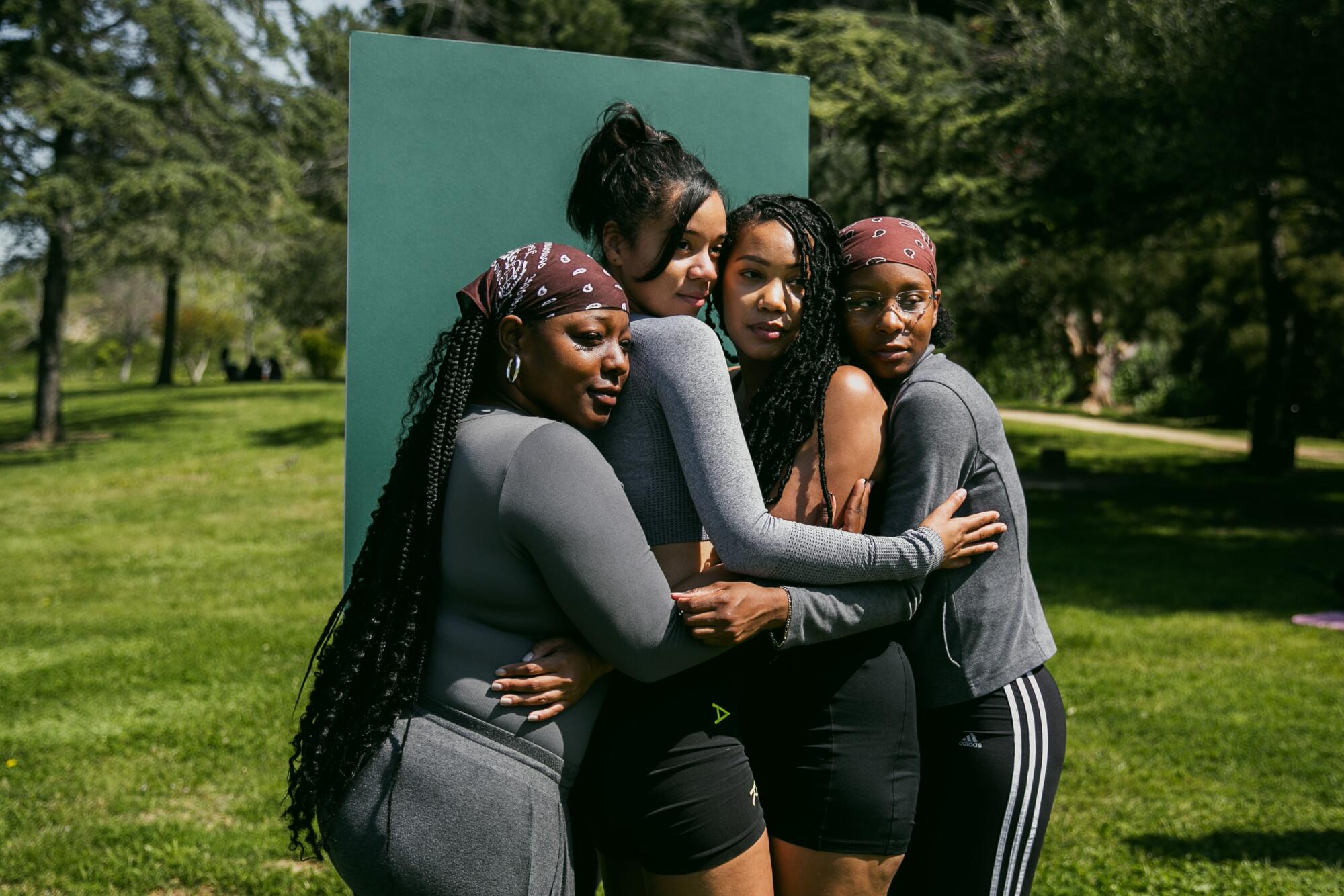
Akita Barrett: “A long time ago, I made the conscious decision that my life is my responsibility and everything that happens in it that I can control starts from a choice that I make.
I prioritize mental health and wellness because if I don’t take charge and make it a choice every day the world will swallow me whole. Daily maintenance of meditating/praying, self-care, getting good night’s rest, eating well and being mindful of what I put in my body, the music I listen to, journaling, and just making sure I stay in front of my emotions and learning them well enough to know how to navigate through them.
I want my Black community to know that taking the initiative and making our mental health first priority is not a sign of being weak or crazy.”
Alisha Henson (third from left), downtown L.A.
“During the pandemic, I started working from home, and continued to work from home for the past four years. At first what I thought sounded like a fun flexible opportunity ended up being a bit of a detriment to my health. I had a very busy schedule, jumping from meeting to meeting, and sometimes I felt like I wouldn’t even leave my desk, in my living room, all day. I was away from family, most of my friends on the weekends, I would rest, but on Monday it would all start all over again and I really felt like my life was passing me by and it sent me into a depression. If I didn’t do something, or make a change in my habits, I thought I would always continue to feel this way.
A friend recommended that I start seeking therapy. It was something that I was open to but never thought I actually needed. I started going to WOC (Women of Color) Therapy last year, and it helped me so much. I’ve seen such a positive change in my mood, how I handle challenges and people, and it’s all been for the better. I love the fact that I get to talk with someone who understands me, looks like me, and gets it without even having to explain.
I think it’s worth going to therapy whether you think you need it or not. I’ve unearthed things about myself, traumas, and broke down walls that I didn’t even realize I had. Being in therapy and taking care of my mental health has changed my life, and I can even see a difference in how it even affects the people around me and how they react and respond. It’s pushed me out of my comfort zone and into places of refuge and community like WalkGood.”
Kwame Jordan, Inglewood
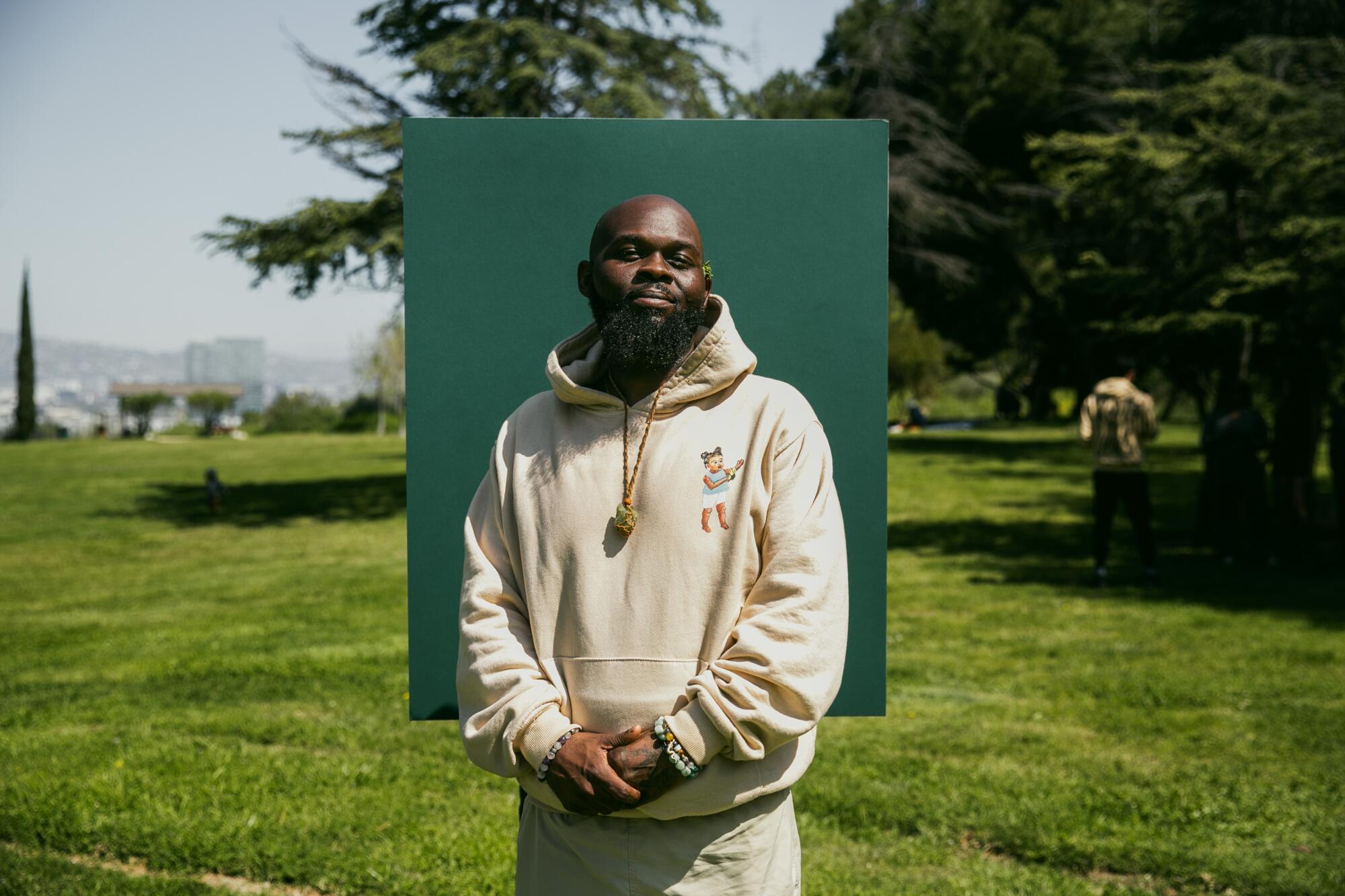
“We carry so much on us mentally and spiritually. We carry so much that we don’t even know it and it starts to take a toll on the mind and body. I prioritize mental health and wellness because it’s the most important thing we can do as human beings. It’s important that I show up for myself. It’s important to prioritize ourselves daily, decompress and release. A wise man said that two things cannot exist in the same place because there are three: mind, body and spirit.”
Nique Gante, Baldwin Hills
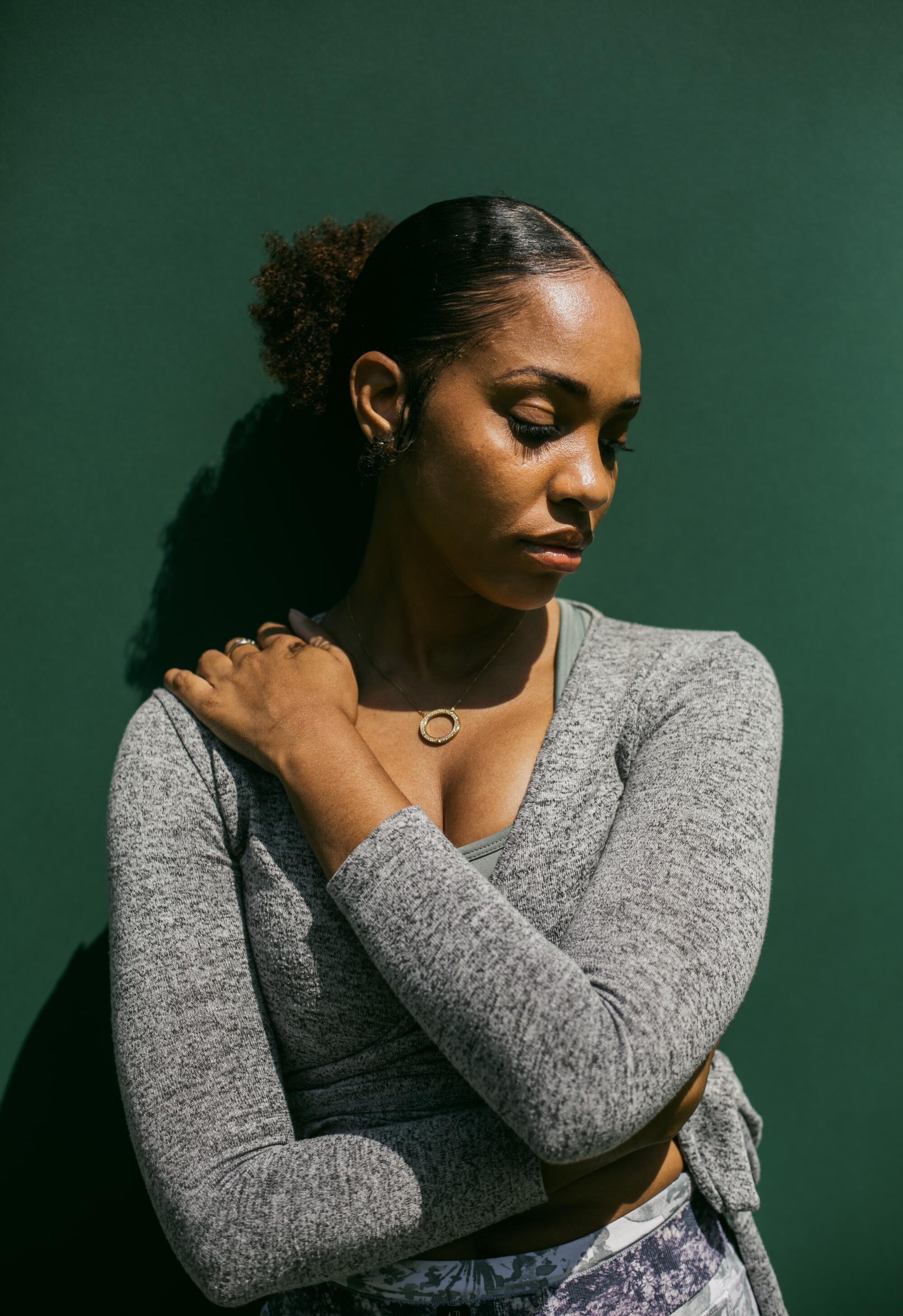
“The quality of Black life depends on Black people catering to our mental health and wellness, prioritizing our peace and healing our mind, body and soul especially in a society which doesn’t serve our sanity and safety we must serve our own to grow, heal and eventually bloom within our circle. When our mind and body’s thrive, so shall our lives. The uprise in Black mental health and wellness is spectacular. We as a whole are creating generational health in the Black community in which we so desperately need. I’m glad to be part of such a powerful life changing movement.”
More to Read
The biggest entertainment stories
Get our big stories about Hollywood, film, television, music, arts, culture and more right in your inbox as soon as they publish.
You may occasionally receive promotional content from the Los Angeles Times.
